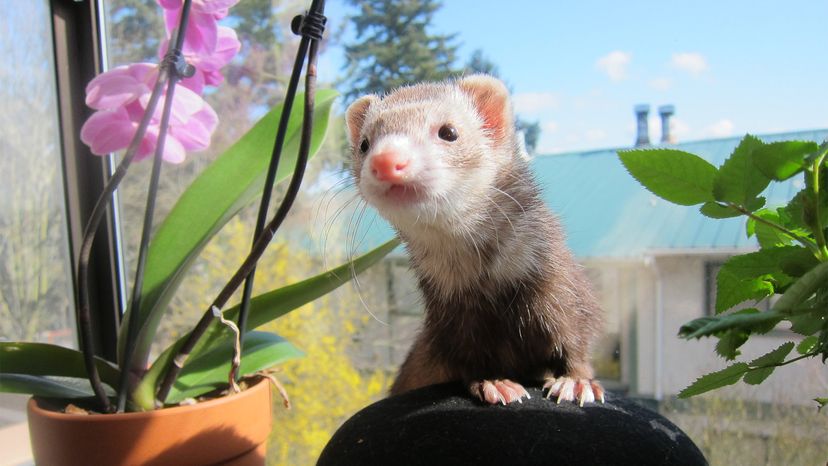
It's the age-old rite: Kid begs for pet; parent gives responsibility lecture (kid hears Peanuts teacher wah-wah voice); kid pinky swears responsibility; parent caves; a few months later parent is pet caretaker.
But as an adult, you can have pets galore! The only catch is that now the buck stops with you. So before walking off the dog-beaten path to the world of exotic pets, do some research. A little research has saved many a pot-bellied pig from city living.
Advertisement
Take ferrets, for example. They're cute critters that have cone-shape noses, long tails and long, pear-shape bodies with short legs and long claws. "Ferrets make great pets, but they aren't for everyone," says Emily Kleinert, DVM, of Cumming Veterinary Clinic in Cumming, Georgia.
Although many people mistakenly think they are rodents (ferrets, by the way, find this offensive), ferrets are actually domesticated cousins of European pole cats and are members of the weasel family. You can get a ferret from a pet store, breeder or a shelter. They usually cost from around $40 at a shelter to between $100 and $150 at a pet store, and more if you buy directly from a breeder. Male ferrets (hobs) are generally larger than females (jills), but both are small. Most ferrets weigh between 1 and 5 pounds (2 kilograms) and are 13 to 16 inches (33 to 40 centimeters) long. Males can grow larger if they are not neutered.
Advertisement